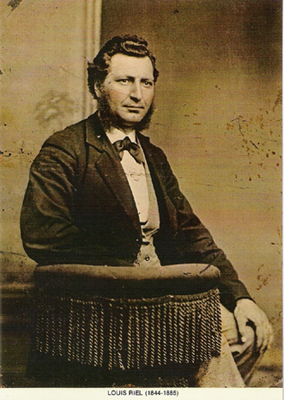 UPDATE Nov. 16 (from Foreign Affairs Minister Peter MacKay's office):Thank you for your email of October 11, 2006, with which you attached a copy of your letter addressed to His Excellency Rafiq Ahmed Khan, High Commissioner for Bangladesh to Canada, regarding human rights abuses in Bangladesh, particularly the case of Mr. Salah Uddin Shoaib Choudhury.Canada takes seriously the issue of human rights in Bangladesh. The Canadian government regularly presses the Government of Bangladesh to take more effective action against extremist violence, to uphold law and order, and to ensure the protection of human rights - including those of religious and minority groups.Please be assured that Canada will continue to raise its concerns, particularly in the lead up to the January 2007 national election in Bangladesh.Thank you again for taking the time to write.Sincerely, Peter G. MacKay, Minister of Foreign Affairs
UPDATE Nov. 16 (from Foreign Affairs Minister Peter MacKay's office):Thank you for your email of October 11, 2006, with which you attached a copy of your letter addressed to His Excellency Rafiq Ahmed Khan, High Commissioner for Bangladesh to Canada, regarding human rights abuses in Bangladesh, particularly the case of Mr. Salah Uddin Shoaib Choudhury.Canada takes seriously the issue of human rights in Bangladesh. The Canadian government regularly presses the Government of Bangladesh to take more effective action against extremist violence, to uphold law and order, and to ensure the protection of human rights - including those of religious and minority groups.Please be assured that Canada will continue to raise its concerns, particularly in the lead up to the January 2007 national election in Bangladesh.Thank you again for taking the time to write.Sincerely, Peter G. MacKay, Minister of Foreign AffairsThe good news: Shoaib survived his day in court in Dakha on Monday. His trial has been put over to January. And he's in surprisingly good spirits for a journalist who has recently spent 17 months in solitary confinement and who has had his newspaper offices bombed and ransacked in recent weeks and is now facing 30 years in jail or execution on charges of blasphemy, sedition and treason. That much I can reliably report, based on my email-exchange / interview with Shoaib early this morning, and from an update he sent to his friends abroad yesterday.
The good news is also that his case is slowly beginning to attract the attention of more and more people around the world. Special thanks are due to his American friends
Dr. Richard Benkin and
Rabbi Sue Levy and such stalwart supporters as
Jeff Weintraub and
Ami Isseroff. The New York Sun's Daniel Freedman has done tremendous work in telling
Shaoib's story, and today, Janet Albrechtsen of The Australian puts
the story in context.
Shoaib's Canadian friends will be happy to know that yesterday I learned that
former Justice Minister Irwin Cotler, the internationally-renowned humanitarian, is now keeping a close eye on developments in Shoaib's case.
One thing that's starting to bug me, though, I have to admit. It's the notable absence of gentile voices (and especially from those of us on the left) being raised on Brother Choudhury's behalf. So come on, fellow goyim. Get cracking. Canucks can make themselves useful by
reading this and taking action (I'm trying to be cheerful here; after all, Shoaib is). Speaking of which, cheery letters of support can also be sent directly to Shoaib's newspaper, the Blitz, at
ediblitz@yahoo.com, and I see his newspaper's online edition is
up and running again.
Shoaib's day was quite eventful yesterday. He barely made it to the court at all, because of the
Awami League blockades. There were no vehicles in the roads, and there were angry demonstrations underway everywhere.
"
I woke up in the early morning to prepare for the court. By 8:30 am., I was already on my way. And, there was nothing on the road, except some bi-cycles and RIKSHAW (please check with google image search to know what is RIKSHAW). I had to walk for around 3 kilometers, before I could some how manage to find a RIKSHAW (distance between my residence and the court is above 20 kilomemeters). Then the RIKSHAW was stopped at one point, almost two kilometers away from the court by police, who put barricades on roads. Then I had to walk again. By the time I was inside the court building, I was sweating. As you know, till now, winter is not very much experienced in Dhaka, when the temparature is approximately 27 degree celcius.
The Court picked up my case at 1:35 pm., and there was a hearing for around 10 minutes. The judge, Mohammed Momin Ullah asked the Public Prosecutor to read the charge in front of me. He came and read, "By praising the Jews and Christians, by attempting to travel to Israel and by predicting the so-called rise of Islamist millitancy in the country and expressing such through writings inside the country and abroad, you have tried to damage the image and relations of Bangladesh with the outside world. For which, charges under section 295-A, 120-A, 124-A, 105-A and 108-A are brought against you. Are you guilty or not".
I replied, "I am not guilty." By advocating inter-faith dialogue, supporting relations between Bangladesh and Israel, I have not done anything wrong. Regarding the existence of Islamist radicals in this country, the matter is already endorsed several times by country's press, leaders, administration and judiciary.The upshot is the Public Prosecutor was instructed to call witnesses to appear against him on January 22, 2007. That means we've still got time to organize on Shoaib's behalf. Here's what Shoaib is hoping his friends will join him in demanding: The immediate removal of the Islamist judge presiding in his case in the Metropolitan Session Judge's court; The immediate provision of police protection for Shoaib; Charges should be laid against the extremist Mufti Noorani in relation to the bomb that was exploded at the Blitz office in July, and the immediate arrest of the attackers who ransacked his office last month as well as the return of the US$ 3,000 and other valuables seized during his arrest.
In our exchange, I learned that Shoaib is not without friends in Bangladesh. The
Bangladesh Minority Lawyer's Association (BMLA) is providing him with legal counsel (via Samarendra Nath Goswami, the Secretary General of BMLA) and he also has the support of at least some Bangladeshi journalists: The daily
Amader Shomoy, one of the largest-circulation Bengali-language newspapers in the country, has been particularly helpful, and Shoaib also enjoys the support of the
Bangladesh Court Reporters Association. Local human rights groups funded by Western sources have been strangely quiet, however.
Of particular interest to journalists and anyone else who professes a commitment to free speech is the content of the charges against Shoaib.
Section 295-A is for Blasphemy. The prosecution feels that I have "hurt the sentiments of Muslims by praising Jews and Christians". So they brought the charge under the above section. Section 120-A, 124-A, 105-A and 108-A are sections for Sedition and treason. According to prosecution, "by attempting to travel to Israel, by demanding relations between Bangladesh and Israel, by predicting the rise of Islamist radicals in this country and by mentioning about training of terrorists in madrassas (especially in kindergarten madrassas), I have conspired to damage Bangladesh's image and relations with the outside world. So they incorporated these sections as well in the charge. But Shoaib's spirits are high. His last words to me:
Thank you once again for your precious support. I am completely indebted to you and others who are standing to raise voice against injustice, Islamofascists and all forms of evils. So let's keep our spirits high, and let's not let him down, eh?
 In the current issue of Walrus Magazine, old-style investigative journalist Andrew Mitrovica has done a great job of exposing the complicity of Canada's national news media in the "terrorist" smear and persecution of Maher Arar.
In the current issue of Walrus Magazine, old-style investigative journalist Andrew Mitrovica has done a great job of exposing the complicity of Canada's national news media in the "terrorist" smear and persecution of Maher Arar.
















